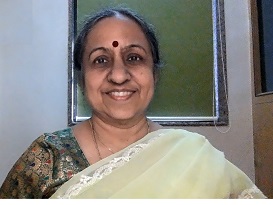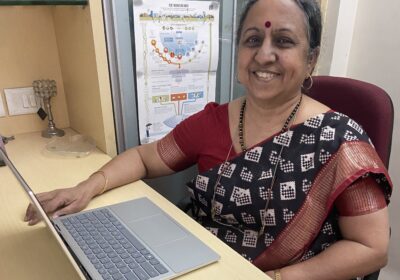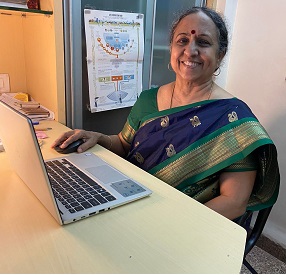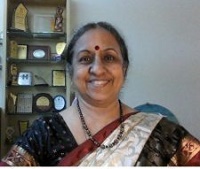“Students these days are very savvy – they find articles in no time. They just google it”…
This is what I hear most often when I say that I teach Structured Literature Searching. And for the 1000th time I think with a sigh “No wonder students and their teachers get away with nil or poor searching skills. We are dealing with a “They don’t know what they don’t know” syndrome!
Why is everyone getting away with this lacuna? I thought through several incidents I have encountered and felt I should share them, highlighting the levels at which I encounter this.
- UG students – They are definitely “Tech Savvy” but the problem is that they are not “Information Savvy”. In school, most do not get to learn to use a library. Oh yes – many do – for story books. That is a great start. But by the high school stage they need to know about “extra reading”. And how to find reference sources
A young Indian girl who migrated to the West when she was in the middle school stage happened to find me online. She shared how she had to go through lots of such learning. She asked me how medical students managed in India? I told her – “most don’t – and that is a sad truth”. And that is what QMed teaches!
However I must add – that medical students are the ones who learn the best and the quickest! And are full of enthusiasm once they understand why they should learn these skills. Their institutions need to instil this understanding. And encourage them to learn, instead of saying that there is no time, or that this stage is too early. - Post graduate students & Residents – So we know now that these students have not learnt these skills in their UG stage or earlier. And when they come into the PG stage a tsunami hits them. In the form of academics, patient care responsibilities and lots more. All this compounded with too little sleep, often not enough time to eat and several other personal restrictions.
Skills like literature searching – no one has told them it is important. So why would they learn it? They see their priority as exams and the thesis. For the thesis – most get away with their lack of skills. Some of them who get a flak, do some firefighting and manage.
A key point is that only if their guides figure out that they have not done a good search, will they get caught. And most often, the guides cannot figure it out. They themselves don’t know these skills. - Teachers and Practitioners – I love this group for one thing. Whenever they listen to my lecture, they admit the truth – that they did not learn these skills and that they feel sorry about it. They are very honest about it. But there is a risk with this group. After hearing the one hour lecture, they believe that that is all people need to learn. And they think that anyone who has heard my lecture once – knows it all now.
They need to understand that searching is a very structured step by step process. It is a process that emerges from a discipline – “Information Sciences”. Where specialists themselves are learning more, just like doctors do in their own disciplines.
Every one needs to learn how to do a good search OR how to correctly speak to an information specialist to ask for what they need. Only then can an information specialist help them get their best. - Heads of institutions and Policy makers from Commissions and Councils – Many of this group have had their medical education during the pre-computer era. Many have become reasonably tech savvy and also get lots of “technology work” done by others.
In the pre-computer era, our institutions could not afford costly indexes and more (eg the Index Medicus – which was the precursor to today’s PubMed). With having no / minimal exposure to sources like the Index Medicus, and no training in this, they have not learnt how Index Medicus “evolved” into PubMed and that there IS a method to search it right. This is then true of other similar databases too.
We can see why people get away with limitations in the skill of searching. There is no mandate to do a good structured literature search. The way it must be done
The outcomes of the lacuna:
I have come across several cases of students and faculty having wasted hours, days or more. Compounded across lakhs of students and practitioners that is a large national waste of time. And this also means that a majority would have substandard literature to base their research on.
A special point I would like to highlight – At a country level, we lost “nation wide access” to a badly needed Evidence based resource like the Cochrane Library. This after having nation wide access to it for seven long years! We have no clue how many people pushed for long term access. The numbers should have been huge. IF, all institutional heads and faculty had learnt about it. And IF the Councils and Commissions had spread lots more awareness and may be mandates in learning about it.
No one seems to know why the access was stopped. Logically it appears that the usage must have been low. People did not learn enough about using it right, to push for it further. Even today majority who interact with me say they do not know how to search it right.
The chain is pretty clear. From the top (decision makers), till the learners (students) – there is lots to be tackled. Decision makers urgently need to understand the importance of imparting these skills. They need to start with strong encouragement to learn these skills and work towards a mandate to learn them. Down the line, everyone needs to learn as much as they can.
We need to save precious time. Hours wasted by lakhs of students and professionals in the health sciences. Count just one hour of time wasted by each – that is a huge waste of national hours. And of course, we need to ensure a right foundation for good research!





